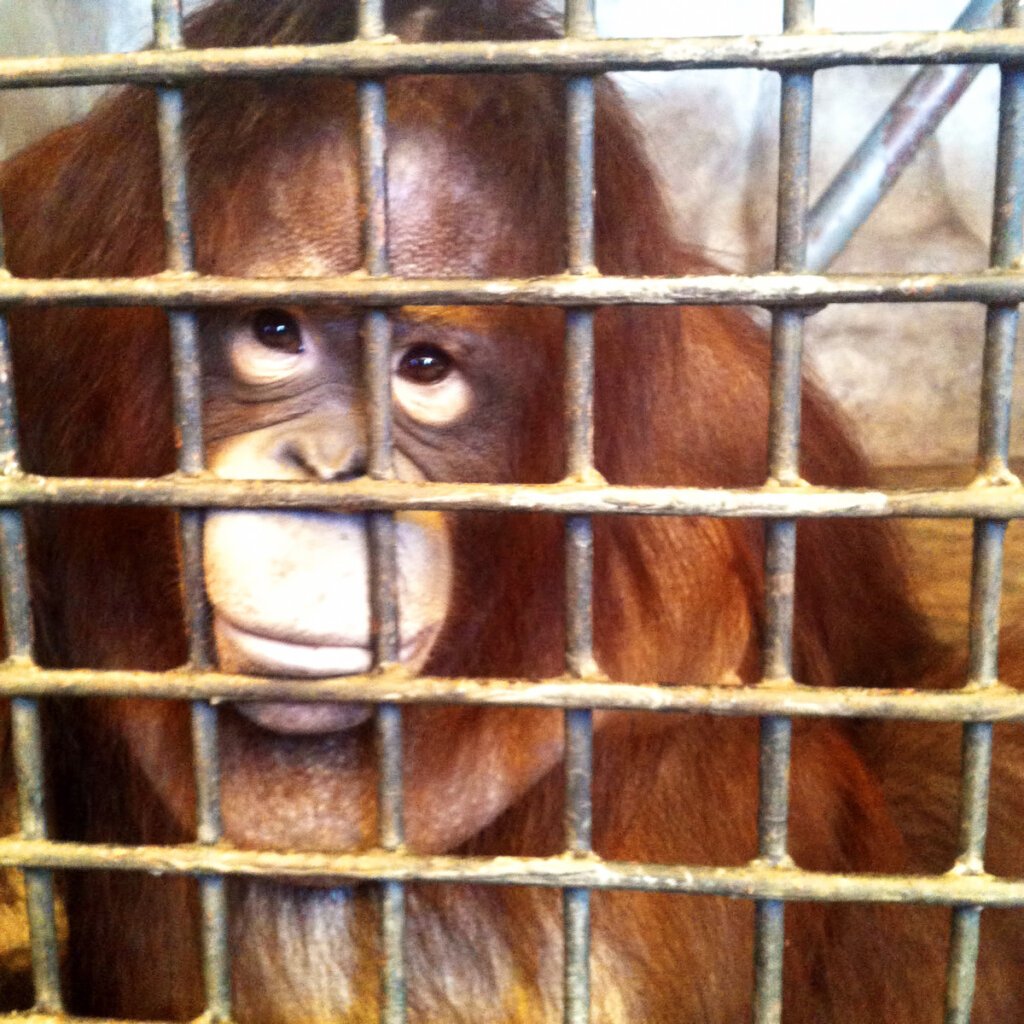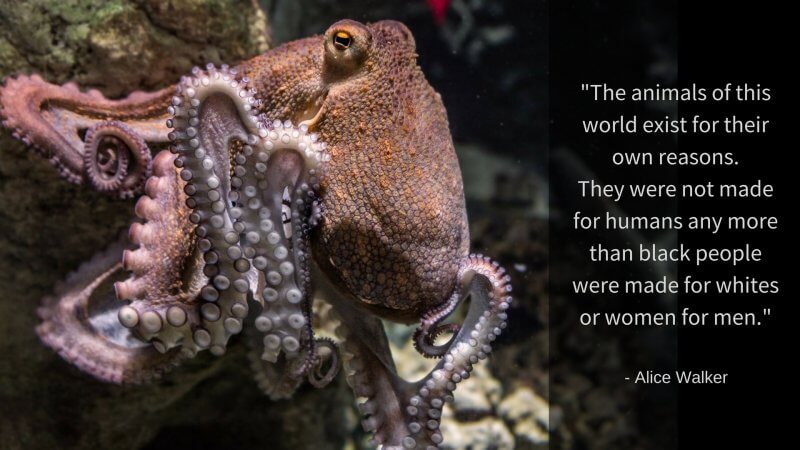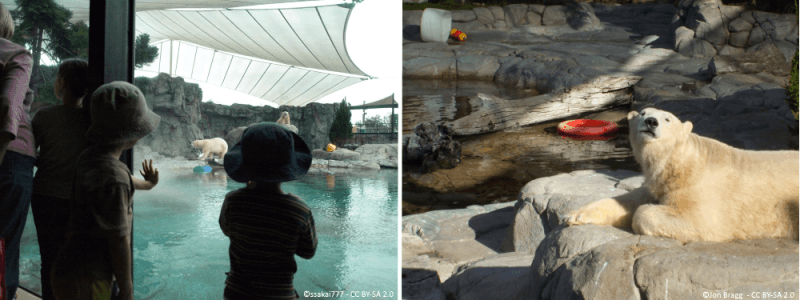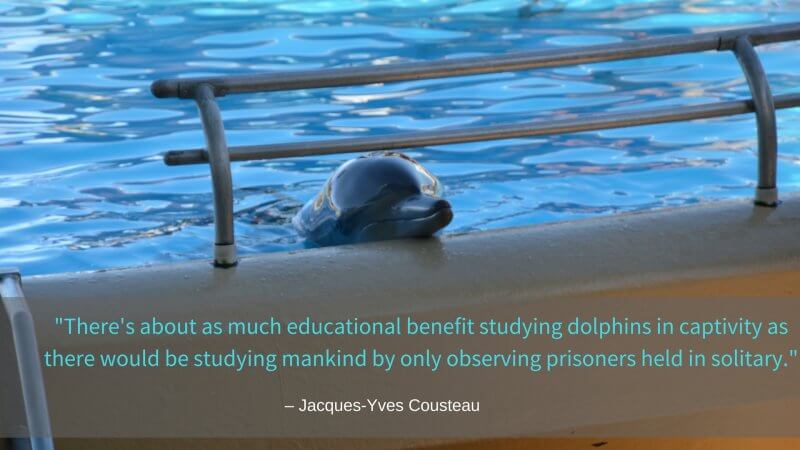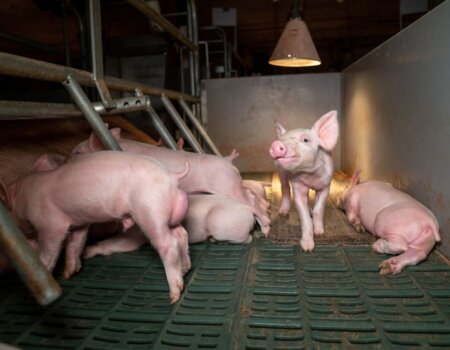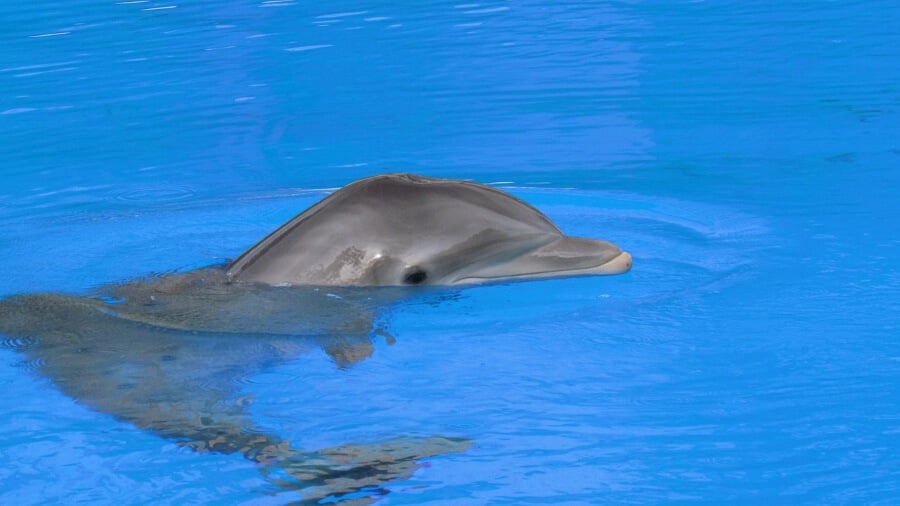
Aquariums and Marine Parks
Some of the world’s most sensitive and intelligent animals are kidnapped and forced to live in tiny enclosures that are dismal imitations of their natural ocean home – and it’s all done by the multimillion-dollar aquarium industry.
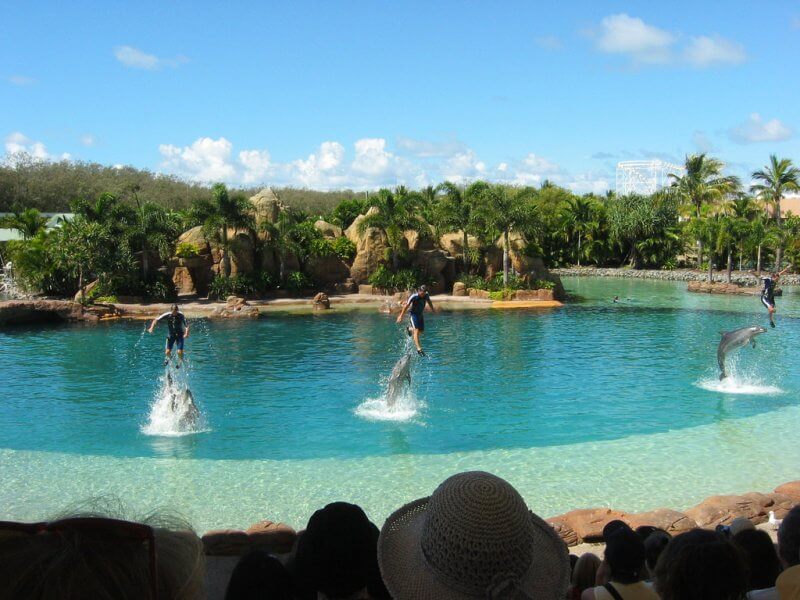
Dolphin Shows

Just because dolphins sometimes look as if they’re smiling, it doesn’t mean that they’re happy to be stuck in concrete tanks, far away from their ocean homes. These social, intelligent animals swim up to 100 kilometres a day with their family pods, looking for opportunities to dive and surf the waves. But in captivity, they’re trapped and forced to perform meaningless tricks in front of noisy crowds for a handful of dead fish. In the wild, they navigate by echolocation, but in tanks, the reverberations from their own sonar bounce off the walls, which is extremely confusing and disorienting for them.
Studies have shown that dolphins in captivity have elevated cortisol levels, often becoming so stressed that they develop ulcers and have to be given antacids. They often express their frustration by swimming in endless circles, floating listlessly at the surface of the tank, or deliberately benching themselves on a platform or stage. In 2015, the risks of imprisoning animals in artificial environments were highlighted when a baby dolphin died in New South Wales after ingesting metal and other litter at the bottom of his tank.
The RSPCA doesn’t support keeping or breeding dolphins in captivity, and in 1985, an Australian Senate Select Committee reported that dolphins in captivity have “suffered stress, behavioural abnormalities, high mortalities, decreased longevity and breeding problems”. It also recommended that Australia’s dolphinariums be phased out, resulting in a ban on dolphin shows in the state of Victoria.
While there are still two dolphin shows in Australia – one at Dolphin Marine Conservation Park (formerly Dolphin Marine Magic) in New South Wales and the other at Sea World in Queensland – the governments of many countries, including Mexico, India, and Canada, are recognising that dolphins and other cetaceans don’t belong in tanks. Meanwhile, the UK closed its last dolphinarium more than 20 years ago.
An Unnatural, Uncomfortable Life
From giant sharks to tiny fish, the animals who are exploited by aquariums in Australia all suffer. Instead of navigating the vast oceans, they’re confined to glass tanks – where they’re exposed to flashing lights, loud noises, and crowds – and denied the opportunity to engage in their natural behaviour. Octopuses are so intelligent that they’re often kept in extra-secure tanks because they’ve been known to attempt to escape by unscrewing water pipes.
As with all businesses that profit from displaying animals, aquariums put commercial interests above animals’ needs. For example, shy fish – who, in the wild, would spend much of their time hiding in rock crevices or seaweed to escape predators – are kept in barren tanks with no place to hide just so that human visitors can get a good look at them. Meanwhile, rays may be kept in shallow tanks that visitors can actually dip their hands into. On the subtropical Gold Coast, Sea World imprisons polar bears, whose natural desires to swim and roam vast distances in the Arctic are cruelly suppressed so that tourists can press up against the walls of their glass prison.
“The voice of the natural world would be, ‘Could you please give us space and leave us alone to get along with our own lives and our own ways, because we actually know much better how to do it than when you start interfering.’” – Jane Goodall
Conservation – Reading Between the Lies
Like zoos, aquariums and marine parks often try to convince the public that by locking animals up in tanks or cages, they’re helping rather than harming them. The vast majority of animals in marine parks and aquariums aren’t endangered – and even if they were, breeding and warehousing them in underwater jails does nothing to bolster their numbers in the wild.
For example, Sea World’sestimated revenue is more than $133 million annually, yet it spends only $1 million on rescue, research, and rehabilitation. That’s less than 1 per cent.
What You Can Do
Here’s what you can do to help marine animals held in captivity:
- Avoid marine parks and aquariums, both in Australia and overseas.
- Send an e-mail to travel companies that advertise tickets to these types of businesses and ask them to stop promoting cruelty to animals.
- Share this page with your friends and family.
Help Animals in 2025: Renew Your PETA Membership!
